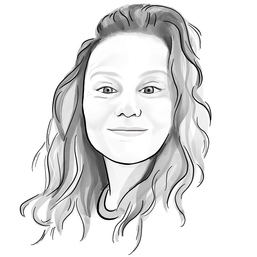
Only Economics & Business faculty to use wide-spread proctoring software
Over two hundred online exams at the UvA will be monitored by proctoring software in the run up to summer. Almost all of these exams will take place at the Faculty of Economics & Business (FEB).
In order to prevent fraud, proctoring software has access to the exam-sitter’s webcam and microphone to watch and ‘listen’ while they take the exam. It also records keystrokes. The UvA uses the programme Proctorio, which goes so far as to be able to scan the room for any books lying open and detect people talking. This data is accessible to members of the Examination Committee to review to determine whether or not the student has committed exam fraud.
Internationals
After three pilots, the UvA decided to use the software for major exams that, due to the corona crisis, now have to be taken at home (previously, the UvA did not recommend proctoring). ‘This is the only way to make sure that international students will not suffer study delay,’ explained dean Han van Dissel.
The FEB has experimented with proctoring before. Peter van Baalen, head of the bachelor programmes at the FEB, announced that there will be 13 proctored exams this week and 28 in June and July. After that, there will be 176 re-sits, also monitored by proctoring software. In total, over fifty per cent of exams will use the surveillance software. ‘From this moment on, we have about 350 exams to go.’
Re-sits
Other faculties have made different choices. The Faculty of Science, for example, has chosen not to use proctoring in the regular study programme despite its strong international make-up. The Faculty of Humanities has made the same decision, as did the Faculty of Law. ‘The system is new to both students and teachers and raises many questions,’ reads its website. The faculty will continue researching the ‘options and limitations’ and will decide how to process for study block 6 only ‘after careful consideration’. For students following PPLE (Politics, Psychology, Law & Economics), proctoring will be the ‘last resort’, says dean Radboud Winkels. ‘Until now, things have worked fine without proctoring software, and so nothing will change for block 6 and the re-sits. However, things may need to change if the current situation lasts a long time.’
At the Faculty of Social & Behavioural Sciences, it was up to each programme to make their own choice. Social Science, Communication Science and Pedagogical Science will not use proctoring, but Psychology is going to test the software in two weeks. ‘As more time passes, the issue of how to properly monitor exams will become more pressing,’ says programme director Ingmar Visser. Meanwhile at the Amsterdam University College (AUC), proctoring software will not be used. Instead, ‘sometimes we ask students to turn on their webcam to make an exam’, says director Michiel van Drunen. In the AUC course Logic, teachers will ask students at random via Zoom if they can explain their answers.
Criticism
The UvA student council has strongly advised against proctoring software. ‘The system records what goes on in your house. This should be your safe space. The university shouldn’t be granted access to it,’ argues chair Pjotr van der Jagt. Sarah Eskens, PhD student at the Institute for Information Law, wrote a blog post on how the UvA is violation the General Data Protection Regulation by using proctoring.


